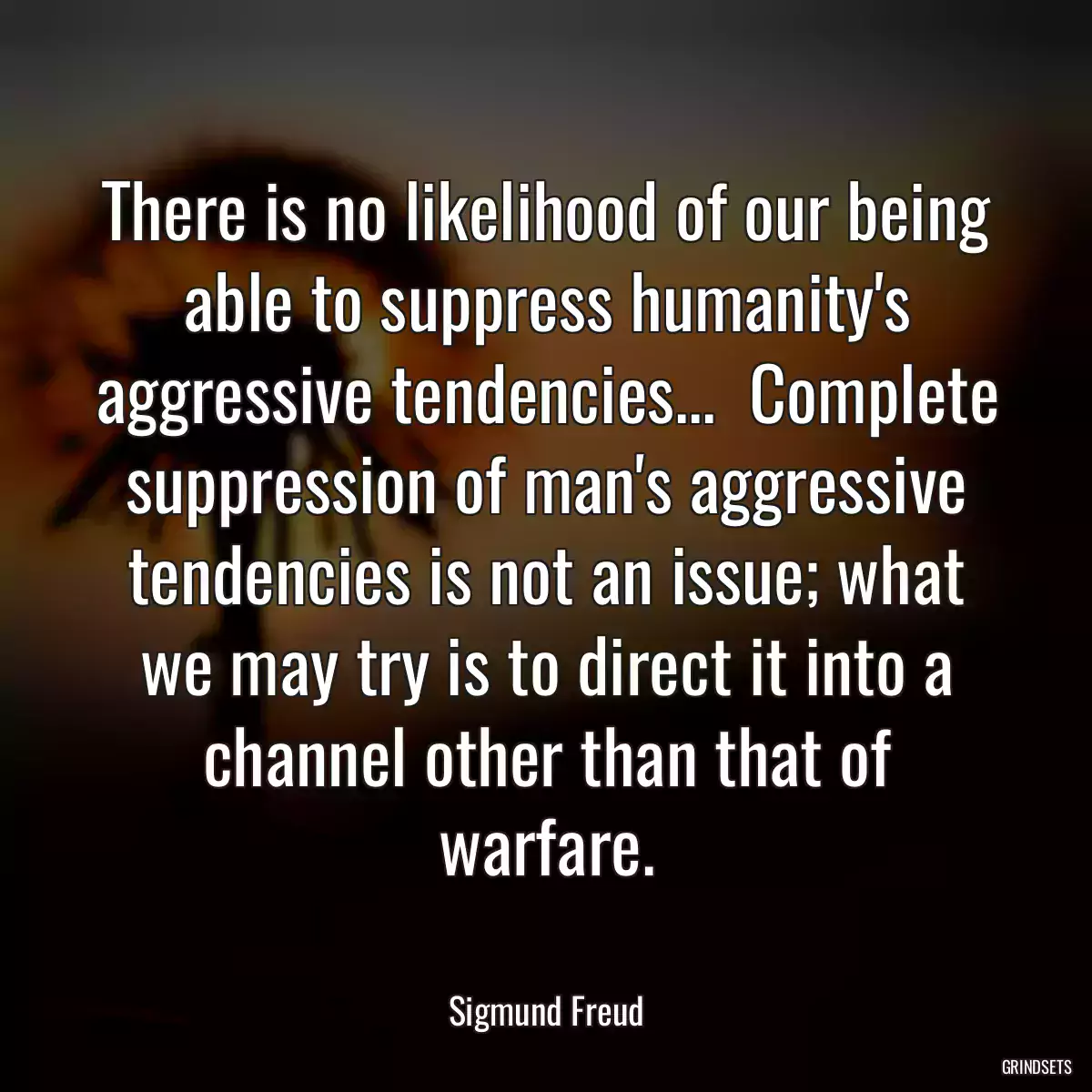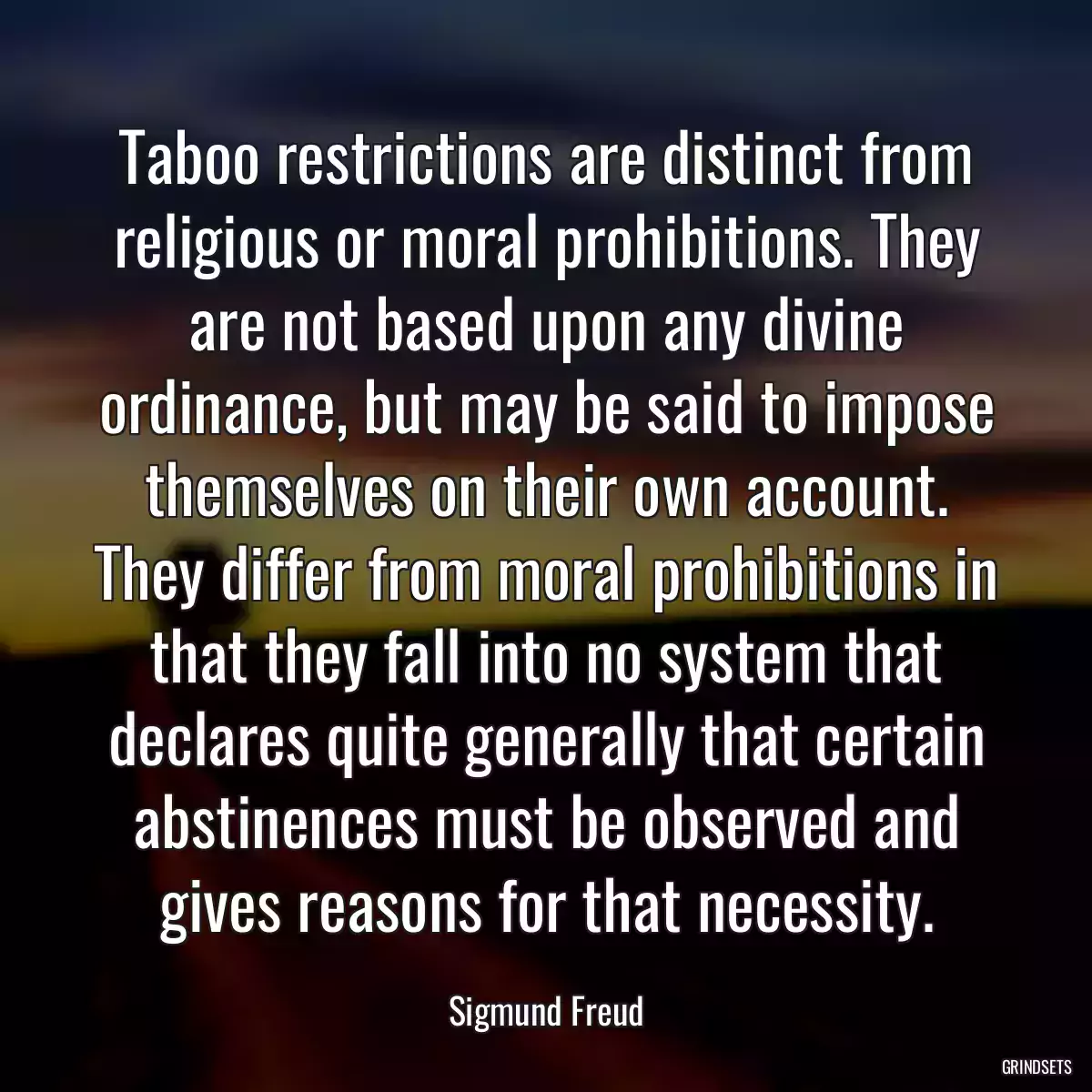
Quotes Sigmund Freud - page 2
Find dozens of Sigmund Freud with images to copy and share.

If all the evidence put forward for the authenticity of religious teachings originates in the past, it is natural to look round and see whether the present, about which it is easier to form judgements, may not also be able to furnish evidence of the sort. If by this means we could succeed in clearing even a single portion of the religious system from doubt, the whole of it would gain enormously in credibility.
I have no concern with any economic criticisms of the communist system; I cannot inquire into whether the abolition of private property is expedient or advantageous. But I am able to recognize that the psychological premisses on which the system is based are an untenable illusion. In abolishing private property we deprive the human love of aggression of one of its instruments... but we have in no way altered the differences in power and influence which are misused by aggressiveness.
An intimate friend and a hated enemy have always been indispensable requirements for my emotional life; I have always been able to create them anew, and not infrequently my childish ideal has been so closely approached that friend and enemy coincided in the same person.
You may also like
Sexuality is the key to the problem of the psychoneuroses and of the neuroses in general. No one who disdains the key will ever be able to unlock the door.
The whole thing [religion] is so patently infantile, so foreign to reality, that to anyone with a friendly attitude to humanity it is painful to think that the great majority of mortals will never be able to rise above this view of life.
In general people experience their present naively, as it were, without being able to form an estimate of its contents; they have first to put themselves at a distance from it - the present, that is to say, must have become the past - before it can yield points of vantage from which to judge the future.
The great question that has never been answered, and which I have not yet been able to answer, despite my thirty years of research into the feminine soul, is 'What does a woman want?'
Writing was in its origin, the voice of an absent person.

Taboo restrictions are distinct from religious or moral prohibitions. They are not based upon any divine ordinance, but may be said to impose themselves on their own account. They differ from moral prohibitions in that they fall into no system that declares quite generally that certain abstinences must be observed and gives reasons for that necessity.
Philosophers stretch the meaning of words until they retain scarcely anything of their original sense. They give the name of "God" to some vague abstraction which they have created for themselves; having done so they can pose before all the world as deists, as believers of God, and they can even boast that they have recognized a higher, purer concept of God, notwithstanding that their God is not nothing more than an insubstantial shadow and no longer the mighty personality of religious doctrines.
When a man has once brought himself to accept uncritically all the absurdities that religious doctrines put before him and even to overlook the contradictions between them, we need not be greatly suprised at the weakness of his intellect.
When someone abuses me I can defend myself, but against praise I am defenceless.
The true believer is in a high degree protected against the danger of certain neurotic afflictions; by accepting the universal neurosis he is spared the task of forming a personal neurosis.
Illusions commend themselves to us because they save us pain and allow us to enjoy pleasure instead. We must therefore accept it without complaint when they sometimes collide with a bit of reality against which they are dashed to pieces.
The study of dreams may be considered the most trustworthy method of investigating deep mental processes. Now dreams occurring in traumatic neuroses have the characteristic of repeatedly bringing the patient back into the situation of his accident, a situation from which he wakes up in another fright.
I am not aware, however, that patients suffering from traumatic neurosis are much occupied in their waking lives with memories of their accident. Perhaps they are more concerned with not thinking of it.
Toward the person who has died we adopt a special attitude: something like admiration for someone who has accomplished a very difficult task.
You may also like

We find a place for what we lose. Although we know that after such a loss the acute stage of mourning will subside, we also know that we shall remain inconsolable and will never find a substitute. No matter what may fill the gap, even if it be filled completely, it nevertheless remains something else.